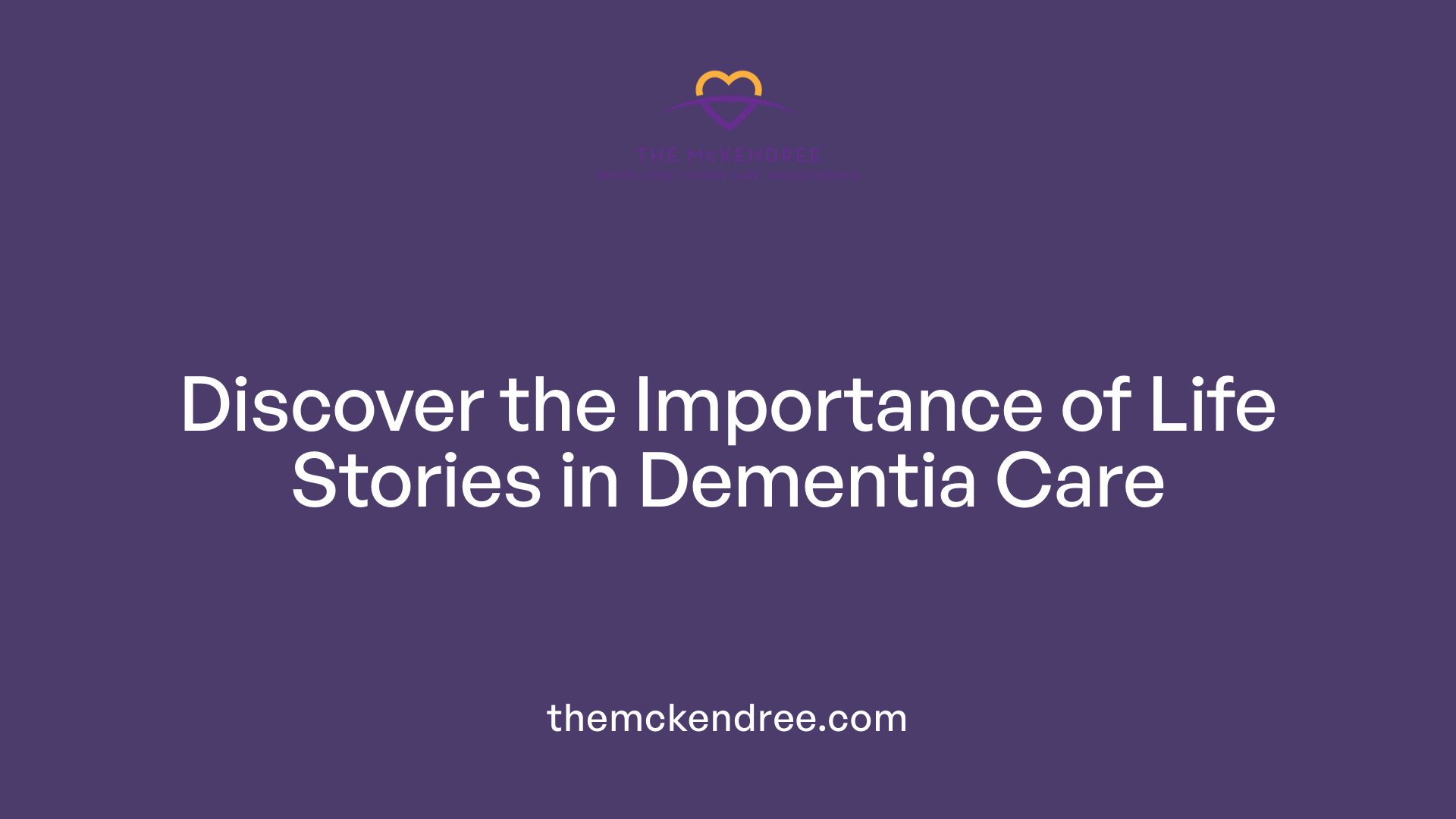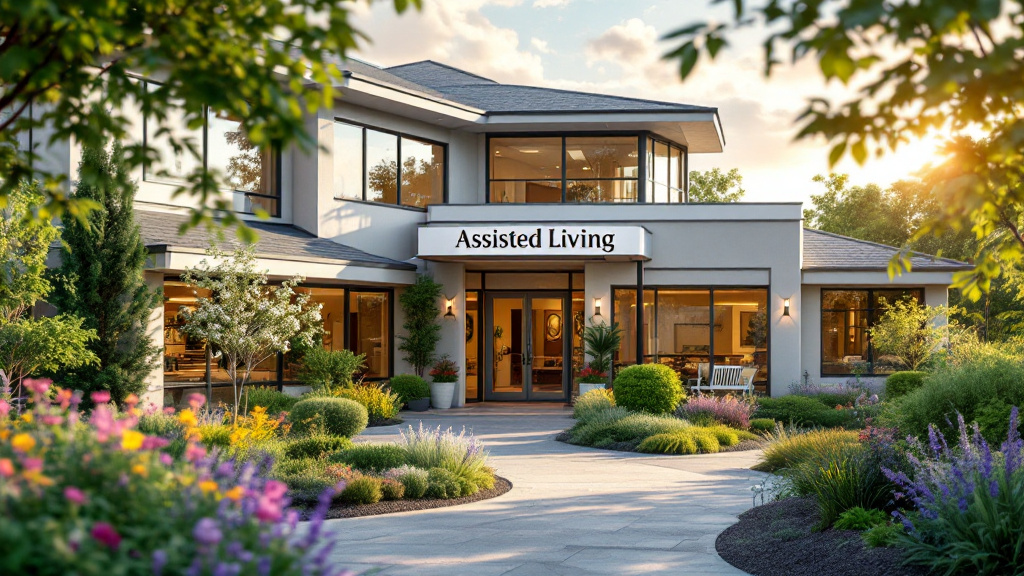How Serenity Memory Care Uses Life Stories to Enhance Connection

Introduction
In the world of memory care, building and maintaining emotional connections with residents is often a challenging yet rewarding endeavor. Many care facilities, like Serenity Memory Care, have found great success in utilizing life stories as a cornerstone of their approach, using them to enhance interactions and foster a supportive environment. This method not only helps caregivers understand residents better but also enriches the daily lives of those with dementia by providing emotional, cognitive, and social benefits.
Introducing Life Stories in Dementia Care

Life stories as a fundamental element in dementia care
Life stories play a vital role in dementia care by providing caregivers with a deeper understanding of residents’ backgrounds. By documenting significant events, friendships, and personal characteristics, caregivers can engage residents on a meaningful level. This understanding allows caregivers to tailor interactions, enhancing the quality of life for individuals facing memory challenges.
Enhancing connections with residents using personal narratives
Personal narratives enrich the caregiving experience at facilities like English Rose and Brookdale. Staff collect these life stories through forms and interviews, exploring routines, joys, and past experiences. This proactive approach offers caregivers the insight necessary to foster genuine relationships, even with residents who may struggle with communication due to dementia. The low staff-to-resident ratio at these facilities ensures caregivers can build stronger bonds with each resident.
The essence of life stories including significant events and characteristics
Life stories capture not only biographical information but also the essence of a person's identity. They reveal preferences, significant past experiences, and highlights from individual lives that shape who they are now. This holistic view enhances person-centered care, enabling caregivers to create a supportive environment that speeds emotional connections and combats feelings of isolation.
What are the benefits of using life stories in dementia care?
Using life stories in dementia care provides several significant benefits that enhance the overall well-being of individuals with memory loss. It fosters emotional and interactional connections, improving communication between caregivers and individuals, which is essential for person-centered care. Life story work supports the preservation of personal identity, allowing individuals to feel valued and recognized for their unique life experiences. Additionally, storytelling promotes social interaction and reduces feelings of isolation, contributing to improved mood and quality of life. Overall, integrating life stories into care practices enriches the caregiving experience and helps maintain a sense of self for those living with dementia.
The Role of Life Stories in Emotional Connection
How do storytelling activities enhance emotional connections in memory care?
Storytelling activities play a pivotal role in forging emotional connections in memory care environments. By encouraging residents to share their personal histories, caregivers can develop a deeper understanding of each individual's identity, preferences, and values. This relational intervention not only affirms residents' past experiences but also fosters appreciation for their ongoing contributions.
As residents recount their stories, it cultivates a supportive atmosphere where shared experiences resonate. This strengthens the bond between residents, as they find common ground and create a sense of community among those with similar backgrounds or challenges. Engaging in storytelling not only helps residents articulate feelings but also empowers them in their healing journeys.
For caregivers, participating in these storytelling activities encourages empathetic listening, which enhances the dignity and respect afforded to each resident. This reciprocal exchange helps establish trust, making interactions more meaningful and supportive. Overall, storytelling activities effectively improve emotional ties, enrich the well-being of individuals, and contribute positively to the emotional climate of memory care settings.
| Topic | Description | Benefits |
|---|---|---|
| Storytelling Impact | Facilitates shared experiences and personal histories | Enhances identity acknowledgment and community sense |
| Caregiver Engagement | Empathetic listening fosters dignity and respect | Builds trust and deepens emotional connections |
| Emotional Enrichment | Supports individual well-being and promotes healing | Creates a more supportive memory care environment |
Life Story Interventions: A Pillar of Memory Care Strategies
What is the significance of life story interventions in memory care strategies?
Life story interventions are significant in memory care strategies as they foster person-centered care by integrating personal narratives into the patient's care plan. This approach acknowledges patients' psychological, social, and spiritual needs, enhancing trust and connection between patients and clinicians. When caregivers familiarize themselves with a resident's unique history, it fosters a sense of belonging and makes patients feel "seen and heard."
How do life story interventions enhance communication and outcomes?
Life story work improves communication among healthcare teams by incorporating these narratives into electronic health records. Such integration allows caregivers to appreciate individual preferences and values, aligning care with what truly matters to the residents. Studies have shown that implementing life story interventions can lead to higher satisfaction and better health outcomes, especially in dementia care. These strategies promote understanding and empathy among caregivers, contributing to a more supportive environment.
What are the key components of personalized care based on life stories?
- Psychological Needs: Recognizing emotional wellbeing through meaningful interactions and activities that resonate with the patient's identity.
- Social Integration: Encouraging social activities based on shared histories, which foster companionship and mitigate feelings of loneliness among residents.
- Spiritual Wellbeing: Acknowledging and respecting the life values and beliefs of residents, which is essential for holistic care.
By integrating these components into care plans, memory care facilities can enhance both the quality of life for residents and the effectiveness of the care provided.
Integrating Life Stories Effectively in Caregiving
How can care providers effectively integrate life stories into caregiving strategies?
Effective integration of life stories into caregiving strategies involves several important steps. First and foremost, utilizing Life Story books is crucial. These books compile personal histories, preferences, and aspirations of residents, providing caregivers with deeper insights into their lives.
Care providers should be trained to listen actively and engage individuals in meaningful conversations. This training enables them to capture significant life events and personal reflections that form an essential part of the individual's identity.
Creating Personalized Care Plans Based on Life Stories
Integrating these personal narratives into person-centered care plans is vital. Such plans allow caregivers to understand and respect individual preferences, enhancing the quality of their interactions with residents. Caregivers can tailor daily activities to align with residents' interests, thereby reinforcing their sense of identity and belonging.
Supporting Emotional Connections Through Story Sharing
Creating a supportive environment for storytelling is key to successful integration. Caregivers should encourage residents to share their narratives, facilitating emotional connections while being mindful of respecting any emotional responses that may arise. Involving the individual in the story creation process can enhance their engagement and sense of ownership over their narrative. Regular updates to these Life Story products ensure that they reflect the current needs and preferences of residents, making them more relevant and helpful in everyday care.
Impact of Life Stories on Communication
What impact do life stories have on communication between caregivers and individuals with memory loss?
Life stories play a crucial role in improving communication between caregivers and individuals experiencing memory loss. By providing context and personal connections, caregivers are better equipped to engage meaningfully with those in their care. Personal narratives not only enhance the understanding of each resident’s background and preferences but also facilitate more effective interactions.
Research indicates that tools like the Life Story Book can improve autobiographical memory, elevate mood, and foster cognitive engagement in individuals with dementia. These enhancements contribute significantly to improved communication dynamics, allowing caregivers to deliver personalized care that resonates with the residents’ histories.
Moreover, sharing life stories promotes empathy among caregivers. When caregivers understand the unique journeys of their residents, they can tailor their approaches to fit individual needs and experiences. This personalized attention shifts the focus from generalized caregiving to a more compassionate, resident-centered framework.
Bridging communication gaps in caregiving
Implementing life story work effectively, complemented by appropriate caregiver training, can further bridge existing communication gaps. For instance, caregivers trained in narrative techniques can draw on the rich histories of residents to foster deeper connections and combat feelings of isolation.
Ultimately, nurturing these connections through life stories not only improves the quality of care but also strengthens interpersonal relationships, making daily interactions more meaningful for both caregivers and residents.
Community Building and Legacy Through Life Stories
Community-building in assisted living through storytelling
Storytelling serves as a pivotal mechanism for fostering community among residents in assisted living facilities. Engaging in storytelling activities allows residents to share personal experiences, creating connections based on mutual understanding and shared histories. Structured sessions guided by trained professionals provide a supportive framework where residents can narrate their lives, enhancing emotional ties not only with fellow residents but also with caregivers.
Creating and preserving legacies via personal narratives
Personal narratives are essential in preserving the legacies of seniors. Programs like "LifeBio" encourage residents to document their unique experiences, ensuring their stories are passed down to future generations. This storytelling not only solidifies individual identities but also enriches family ties, allowing younger family members to appreciate their elders' rich histories. Legacy building through narratives emphasizes the importance of capturing life events, values, and lessons learned, which strengthen familial bonds and celebrate contributions to society.
Social interaction and quality of life enhancements
The therapeutic benefits of storytelling enhance quality of life for residents. As individuals engage in story-sharing, they experience improved cognitive functions and reduced feelings of isolation. This social interaction fosters new friendships and encourages them to participate in community activities. By aligning activities with residents' interests and backgrounds, facilities can cultivate engaging experiences leading to a vibrant communal atmosphere. Therefore, life stories are not merely records of the past but lively interactions that support mental, emotional, and social wellness, proving vital for enriching life in assisted living.
A Holistic and Personalized Approach to Memory Care
The integration of life stories into memory care, as exemplified by Serenity Memory Care, underscores the transformative power of personal narratives in enhancing the caregiving experience. By focusing on residents' unique life stories, caregivers are equipped to offer truly personalized and empathetic care, significantly improving the quality of relationships and interactions. The approach not only fosters a nurturing environment where residents can thrive but also ensures that their voices and histories continue to enrich the community around them. As more care facilities recognize the value of life stories, this personalized approach promises a brighter future for memory care, where dignity, connection, and compassion take center stage.
References
- How Life Stories Influence Dementia Care at English Rose
- The Role of Storytelling in Memory Care: Preserving Personal ...
- The Power of Life Stories in Memory Care - Brookdale
- The Power Of Story: Enriching Lives In Assisted Living
- Heartfelt Connections Memory Care Program | The Heritage
- [PDF] Serenity Success Story: Assured Living
- 4 Benefits of Reminiscence and Storytelling in Improving Caregiving
- About - LifeStory Connection








































.jpg)








.jpg)





.jpg)
.jpg)
.jpg)
.jpg)
.jpg)
.jpg)
.jpg)
.jpg)



.jpg)

.jpg)
.jpg)
.jpg)
.jpg)


.jpg)
.jpg)
.jpg)
.jpg)

.jpg)
.jpg)
.jpg)


.jpg)
.jpg)










.jpg)



